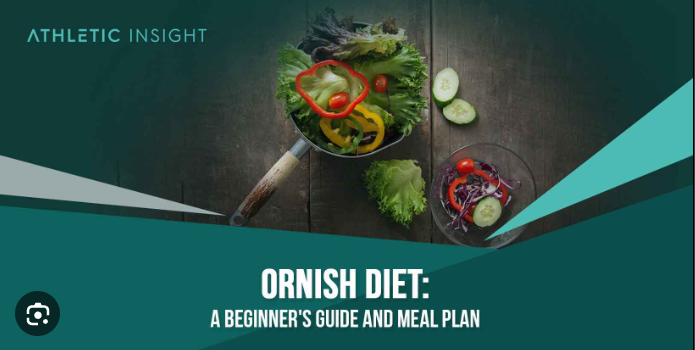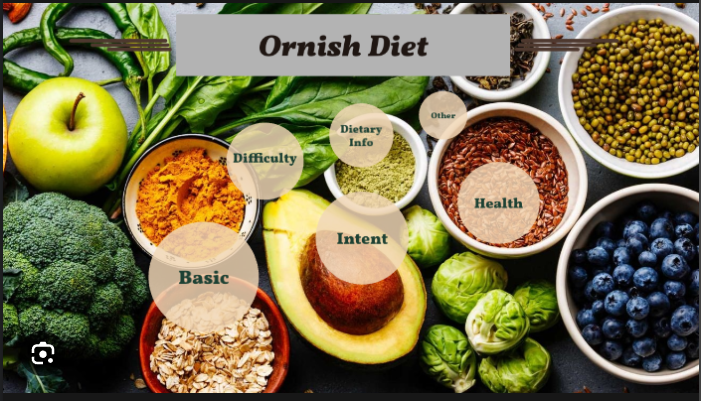Although the Ornish diet is most recognized for treating cardiac disease, devotees can adapt the program to meet their personal objectives, including weight loss, blood pressure control, or cancer prevention.
What is the Ornish diet?

Also read-Dr. Weil’s Anti-Inflammatory Diet
Dr. Dean Ornish, clinical professor of medicine at the University of California, San Francisco, and founder of the nonprofit Preventive Medicine Institute in Sausalito, California, created the Ornish diet, a low-fat eating regimen, in 1977. The Ornish diet can have a number of advantages, including the ability to reverse chronic disease and enhance general health.
According to Frederick, Maryland-based registered dietitian Sarah Schlichter, the diet promotes consuming a variety of plant-based meals such as fruits, vegetables, whole grains, and legumes. The diet, also known as a lacto-ovo vegetarian diet plan, does not recommend eating meat, fish, or fowl, although it does allow for a limited amount of nonfat dairy products and eggs.
From the healthiest (group one) to the least healthful (group five), the diet divides food into five categories. One of the four main foundations of the Ornish Lifestyle Medicine by Sharecare program is the Ornish diet. The other four are love (the notion that joy and sociable connections with people are essential to well-being) and social support.
Can I lose weight on the Ornish Diet?

Numerous studies indicate that a plant-based eating plan, such as the Ornish diet, can be successful for weight loss.
Recent studies have indicated that whole-food, plant-based diets may aid in weight loss and the prevention of chronic diseases.
Is the Ornish diet easy to follow?

The Ornish diet ought to be simple to adhere to and long-lasting. The diet allows for a variety of recipes, and the foods you would need are readily available at most grocery stores. It should be rather simple if you’re using the Spectrum strategy, which enables you to make choices based on your priorities, preferences, and level of commitment.
The approach is more stringent and may be harder to adhere to if you want to reverse cardiac disease. Ornish argues, however, that it is simpler over time than taking a statin or other cholesterol-lowering medication since the program improves your quality of life to the point where you want to continue. Ornish asserts that the majority of patients experience significant decreases in angina, or chest discomfort.
Still, research shows most dieters have a hard time sticking to a plan that restricts fat to 10% of their daily calories.
Overall, if your health doesn’t depend on it (i.e., you don’t have heart disease), working with a slightly higher fat intake or trying the spectrum approach may help you stick with the diet. Ornish, too, supports making more moderate changes that fit with your lifestyle before making bigger ones as you see the benefits.
Pros
- No counting carbs, points, or calories.
- Filling: it’s rich in high-fiber foods.
- Has proven health benefits.
Cons
- Tedious portioning, meal planning, or prep
Also read-Reviews Of Weight Watchers, Prices, And How It Functions
Images source- Google




































